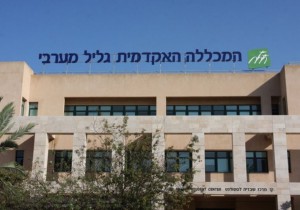The past two decades have seen a drastic increase in the number of undergraduate applicants to academic colleges and a drop in undergraduate applicants to universities, according to a Central Bureau of Statistics report.
The report sought to analyze data on the applicants for undergraduate degree studies at academic colleges in comparison to undergraduate applicants to Israel’s universities.
This year marks the 20th anniversary of the amendment to the Council for Higher Education Law, come to be known as the “Academic Colleges Law,” which for the first time allowed approved colleges to award certified academic degrees.
According to the report, during the 1995/96 academic year some 13.5 thousand students studied in academic colleges. Over the course of the past twenty years that number has steadily grown so that in 2012/13 some 105.9 thousand students were pursuing degrees in academic colleges.
The findings further indicated that between the years 2009/10 and 2012/13 there was a decrease in the number of undergraduate applicants to universities, from 33.5 thousand to 29.7 thousand applicants, while in contrast the number of undergraduate applicants to academic colleges during these same years increased from 38.9 thousand to 45.5 thousand students.
Despite the decrease in applicants to universities, the report stated that “statistics regarding students for undergraduate degrees from the past few years show that, in general, higher education in Israel has expanded.”
In the academic year 2013/14 the data showed that there were 31.4 thousand undergraduate applicants to universities and 39.2 undergraduate applicants to academic colleges. Of the applicants to universities, 72.5 percent were accepted to their first choice in comparison to 71.2% of applicants to academic colleges.
The report also found that more than two-thirds of applicants to academic colleges, some 68.8%, preferred to learn one of four fields: Business and management administration (19.5%), social sciences (18.9%), engineering and architecture (15.9%) and law (14.5%).
With regards to gender and ethnicity, the report found that the majority of applicants to academic colleges, some 54.6%, were women while 12.3% of applicants were Arab.
Among women, the most sought after fields of study were social sciences, art, paramedical professions and especially education and teacher training. In contrast, the preferred fields of study for men included engineering and architecture, math and computer sciences. Among the Arab population, the preferred field of study by far included paramedical studies.
The report also indicated that 9.1% of applicants to academic colleges were born in the former Soviet Union, with the preferred fields of study for this population group included engineering and architecture as well as business and management.
Furthermore, only 1.6% of applicants to academic colleges were of Ethiopian origin, with the preferred fields of study including business and management administration as well as social sciences.

